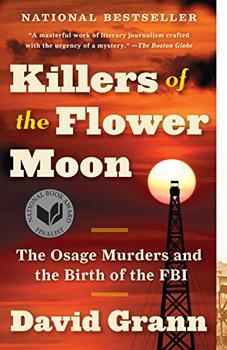Summary | Excerpt | Reading Guide | Reviews | Beyond the book | Read-Alikes | Genres & Themes | Author Bio

Sarah Schmidt's historical fictionalization of the Lizzie Borden story is a tsunami. From the first sentence - "He was still bleeding." – to housemaid Bridget's undergarments pasted to her perspiring legs, right on through to the sticky sweetness of ripe pear juice as it sluices over the chins and down the arms of policemen investigating the murders, we are engulfed by wave after wave of fluids. Every. Sort. There are the sloshing pots that need emptying every morning. There's the ubiquitous mutton broth, virtually a character in its own right, plotting wicked revenge on this niggardly family from its constant place on the stove. Consumed at every meal, growing ever more rancid by the hour, it wreaks havoc on Borden digestive systems. Oh, yes. There's vomit too.
Schmidt possesses this gift – albeit a peculiar gift (all the better to tell a peculiar story) – which thrusts us into the throes of August 1892 Fall River, Massachusetts. There really couldn't be a more effective way for us experience the visceral sights, smells and seething silences of the Bordens' world. By switching narrative voices between Lizzie, elder sister Emma, the hateful housemaid Bridget, and a man named Benjamin – a figment of Schmidt's imagination who is an acquaintance of the sisters' maternal Uncle John – we get a blend; a stew of a family so closed in upon itself, so full of mutual contempt that violent death feels inevitable. Inescapable. The most puzzling thing is why Emma didn't do the deed.
When patriarch Andrew Borden refuses to permit Emma a trip to Europe, as was the custom among young women of her class, she allows, "because he knew I would never come back, would encourage Lizzie to move out of the house too. And if I wasn't housebound, I wasn't Borden-bound. And he would be right." Even worse than being "Borden-bound", Emma was even more bound to Lizzie. She resented this younger sibling. "I wanted Lizzie to die, never to have existed. But I reminded myself that Mother had given Lizzie to me to love. I would always have to accept Lizzie without hesitation."
And there's Lizzie: "one part love, one part brilliance, one part mystery." Mystery indeed. Her narrative is all over the place. She's quixotic. Crazy? Who knows. Cold? Certainly. "I looked at Father. I touched his bleeding hand, how long does it take for a body to become cold? And leaned closer to his face, tried to make eye contact, waited to see if he might blink, might recognize me." Eerie brilliance? Lizzie leaves a lot of question marks. Schmidt conveys a remarkable restraint in crafting this character. We are consistently left wondering. Did she kill them? Did she accidentally disturb a murder-in-progress? Is that why Mr. Borden had to be dispatched much more quickly than his hapless wife who had been murdered before him in a different room?
Schmidt leaves everyone and/or no one guilty without a shadow of doubt. Lord knows Bridget had motive, means and opportunity as well. The whole family treated her with disregard, thoughtlessly leaving messes for her to clean up, even physically abusing her. When Mrs. Borden got wind of Bridget's plans to leave their employ she, "slapped me hard across the face, the meat cleaver sound, my head snapping to the side, my body going with it, and the room echoed like that banshee's cave. I tasted blood in my mouth." Mrs. Borden even stole the money that Bridget had been saving to buy her passage back to Ireland.
See What I Have Done is a stay-up-late novel for crime and psychological suspense fans. The profiles feel spot on. The drama is intense. The fetid atmosphere of over-ripening fruit, summer heat and festering emotional wounds is not for sissies. But brace up and dive in.
![]() This review was originally published in The BookBrowse Review in August 2017, and has been updated for the
July 2018 edition.
Click here to go to this issue.
This review was originally published in The BookBrowse Review in August 2017, and has been updated for the
July 2018 edition.
Click here to go to this issue.

If you liked See What I Have Done, try these:

by Clare Beams
Published 2021
Sarah Waters meets Red Clocks in this searing novel, set at an all-girl school in 19th century Massachusetts, which probes the timeless question: who gets to control a woman's body and why.

by David Grann
Published 2018
Winner of the 2017 BookBrowse Nonfiction Award
A twisting, haunting true-life murder mystery about one of the most monstrous crimes in American history.
Your guide toexceptional books
BookBrowse seeks out and recommends the best in contemporary fiction and nonfiction—books that not only engage and entertain but also deepen our understanding of ourselves and the world around us.